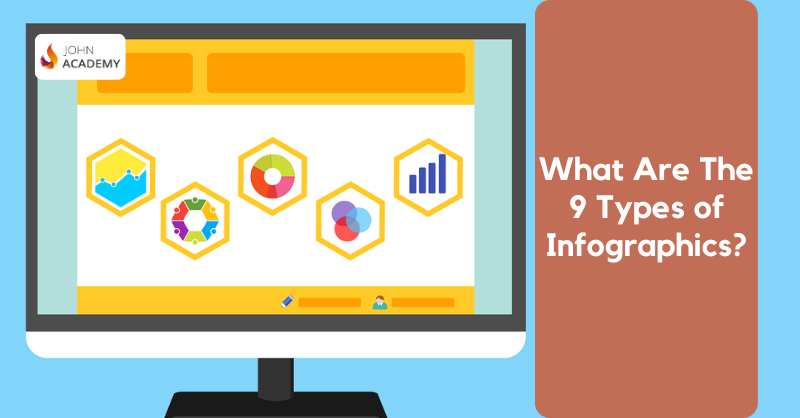Windows 10 or 11: Which Reigns Supreme?

Discover the ultimate showdown between Windows 10 and 11 - find out which operating system comes out on top!
Table of Contents
Introduction: The Battle of Windows Versions
We kick off by introducing the two latest Windows operating systems, Windows 10 and Windows 11. You might wonder which one is better or why you should choose one over the other. We will explore these questions and more!
Getting to Know Windows 10
Windows 10 is a popular operating system that many people use on their computers. It has lots of cool features that make it easy and fun to use. Let's take a closer look at what Windows 10 is all about!
What is Windows 10 and its Cool Features
Windows 10 is like the brain of your computer. It helps you do things like browse the internet, play games, and write school papers. One cool feature of Windows 10 is the Start Menu. It's like a magic box that holds all your favorite apps and files, making it easy to find what you need.
How to Check if You Have Windows 10
If you're not sure if your computer is running Windows 10, don't worry! Checking is easy. Just click on the Windows icon in the bottom left corner of your screen. If you see a menu pop up with tiles and lists of apps, congratulations! You have Windows 10.
Understanding the Cost of Windows 10
Some people think Windows 10 is expensive, but there's a secret - it's not always costly. When Windows 10 first came out, Microsoft offered it as a free upgrade for people who had older versions of Windows. So, if you got Windows 10 during that time, you probably didn't pay a penny. But if you're getting a new computer or upgrading from a really old version of Windows, there might be a cost.
Exploring Windows 11
As we shift our focus to the latest operating system from Microsoft, Windows 11, let's dive into what makes it stand out. Is Windows 11 truly a step up from Windows 10? And most importantly, can you still upgrade to Windows 11 for free? Let's find out!

Image courtesy of www.johnacademy.co.uk via Google Images
What's so Great About Windows 11?
Windows 11 brings a fresh and modern look to your PC or laptop, with a redesigned Start menu and taskbar that are more intuitive and visually pleasing. It also comes with enhancements in gaming, productivity features, and overall performance improvements. The system requirements have been optimized to run more efficiently on a wider range of devices, making it accessible to more users.
Can I Upgrade to Windows 11 for Free?
If you're wondering whether you can get your hands on Windows 11 without spending a penny, the answer isn't as straightforward as it was for Windows 10. While some users may be eligible for a free upgrade, not everyone will qualify. Microsoft has specific requirements for hardware compatibility that need to be met in order to upgrade to Windows 11. Make sure to check your device's eligibility before proceeding with the upgrade process.
Comparing Windows 10 and 11
When it comes to choosing between Windows 10 and Windows 11, it's essential to understand the differences to make an informed decision on which one may be better for you. Let's take a closer look at how these two operating systems stack up against each other.
The Pros of Windows 10 over Windows 11
Windows 10 has been around for a while now, and that comes with its own set of advantages. One of the key perks of Windows 10 is its familiarity. Many users are already comfortable with how Windows 10 works, making the transition to a new operating system less daunting. Additionally, Windows 10 has a vast library of applications and software that are compatible with it, ensuring you can find and use the programs you need.
The Cons of Windows 10 and How Windows 11 Improves
While Windows 10 has its strengths, it also has its weaknesses. One common complaint about Windows 10 is its lack of a consistent design across all its elements, leading to a slightly disjointed user experience. Windows 11 aims to address this issue by introducing a more cohesive design language, creating a smoother and more visually appealing interface. Moreover, Windows 11 enhances productivity with features like Snap Layouts and Snap Groups, making multitasking a breeze.
| Features | Windows 10 | Windows 11 |
|---|---|---|
| Start Menu | Classic menu with Live Tiles | New centered menu with rounded corners |
| Taskbar | Bottom placement with traditional icons | New centered placement with updated icons |
| Virtual Desktops | Available with Task View | Improved multi-desktop support |
| Window Management | Aero Snap, Shake, and Peek | New Snap Layouts and Snap Groups |
| Performance | Optimized for older hardware | Improved virtual memory management |
| Compatibility | Extensive compatibility with older software | Improved support for newer hardware |
Making Your Choice
When it comes to choosing between Windows 10 and Windows 11, there are a few key factors to consider. Let's break down some tips to help you make an informed decision based on your needs and preferences.

Image courtesy of www.claytex.com via Google Images
Which Windows Fits You?
First and foremost, think about what you use your computer for. Are you a student who needs to run specific software for school? Or are you a gamer looking for the latest features and performance enhancements?
Windows 10 may be a better fit if you prefer a more familiar operating system with solid performance and compatibility with a wide range of software. On the other hand, Windows 11 offers a sleeker interface, improved gaming capabilities, and enhanced productivity features that might appeal to you.
Consider your daily tasks and how each operating system can support your needs effectively before making a decision.
Considering the Costs
Cost is another crucial factor to think about when choosing between Windows 10 and Windows 11. While Windows 10 is generally more affordable and might already be available on your device, Windows 11's pricing and potential upgrade costs could influence your decision.
Take into account your budget and weigh the benefits of upgrading to Windows 11 against the potential expenses. If the new features and improvements in Windows 11 align with your needs and justify the cost, it might be worth considering the upgrade.
Ultimately, the choice between Windows 10 and Windows 11 boils down to your specific requirements, preferences, and financial considerations. Take the time to explore the features of both operating systems, reflect on your usage patterns, and evaluate the costs before making your final decision. Happy computing!
Conclusion: The Ultimate Windows Winner
After diving into the world of Windows operating systems, exploring the features of Windows 10 and Windows 11, and comparing the two, it's time to crown the ultimate Windows winner. Both versions have their strengths and weaknesses, making it essential to consider your needs and preferences before making a choice.
Choosing the Best Windows for You
Deciding between Windows 10 and Windows 11 ultimately boils down to what you value most in an operating system. If you prioritize familiarity and stability, Windows 10 might be the best fit for you. On the other hand, if you crave a modern, sleek interface with cutting-edge features, Windows 11 could be your preferred choice.
Cost Considerations
When it comes to cost, Windows 10 might have an advantage for some users. While Windows 11 introduces exciting new capabilities, it also comes with hardware requirements that not all computers may meet. This could mean additional expenses if you need to upgrade your device to run Windows 11 smoothly.
Ultimately, the best Windows version is the one that aligns with your needs, budget, and technological capabilities. Whether you stick with the reliable Windows 10 or take the leap to the innovative Windows 11, remember that both operating systems are designed to enhance your computing experience in different ways.
FAQs
FAQ 1
Is Windows 11 still a free download?
As of now, Windows 11 is not available as a free download for existing Windows users. If you wish to upgrade from Windows 10 to Windows 11, you may need to purchase a license or meet certain system requirements set by Microsoft.
FAQ 2
Why is Windows so expensive?
Windows operating systems come with a price tag due to the research, development, and continuous updates that Microsoft invests in improving their software. The cost also covers technical support, security enhancements, and new features that are added to each new version of Windows.
FAQ 3
How can I tell if I have Windows 10?
To check if you have Windows 10, simply click on the "Start" button on your computer, then select "Settings". From there, choose "System" and then "About". Under "Windows specifications", you will see information about the version of Windows installed on your device. If it's Windows 10, it will be clearly indicated here.


